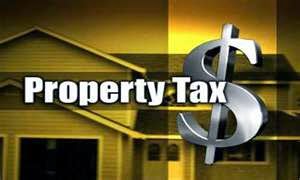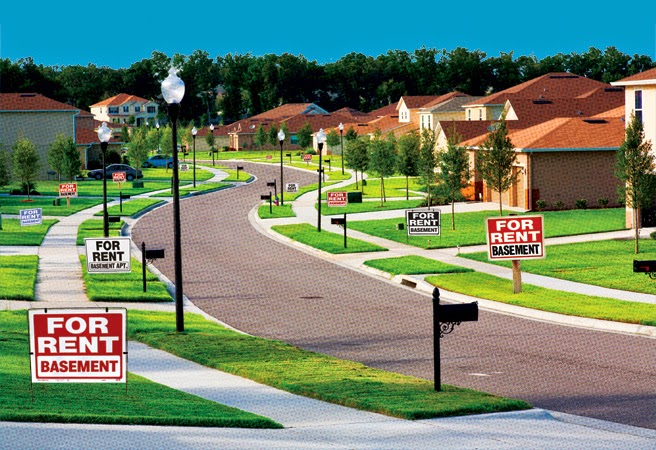This is the 2nd installment in my series about the costs involved in owning a home. You can read all about Utilities (heat, hydro, water) HERE & Insurance HERE
This can be a complex subject but you really only need a basic understanding of how things work since there's no way to change it...whether you rent or own, you're paying this tax...end of story. So consider this post to be Property Taxes for Dummies, lol :)
What Are Property Taxes?
Municipalities collect taxes based on the value of your property to pay for local services, like firefighting, garbage collection, snow removal etc. Municipalities set that rate on a yearly basis based on how much money they think they will need to deliver these services. Properties are divided into classes & each class has a different tax rate. As always, my focus & the information I write about is geared towards residential properties. There are different tax rates for farms, industrial, commercial, multi-residential etc...
What Is The CVA
This is your Current Value Assessment & they are updated every 4 years & work on a phased-in system. MPAC is responsible for maintaining this valuation system (more on that below). Your tax bill is based on 3 components:
- MPAC's Assessed Value
- MPAC's Property Class
- Municipality's Tax Rate
What Is MPAC's Role?
MPAC is responsible for the classification & valuation of properties across the province. MPAC provides homeowners with their assessed value & also sends the information to Municipalities so that they can collect the taxes owed. There are 5 main categories that MPAC uses to establish value but there are up to 200 other criteria they may look at as well.
1. Location
2. Lot dimensions
3. Living area
4. Age of the structure, adjusted for any renovations or additions
5. Quality of construction
What Is The Municipality's Role?
Municipalities are not allowed to run a deficit so they set the tax rate based on their projected budget to pay for local services. They send out tax bills to homeowners based on the Assessment rolls they receive from MPAC Assessed Value x Tax Rate (for your Property Class) = Property Taxes Payable They also remit the education portion of the tax rate to the provincial government based on whether you support public or separate education.
What Are The Local Tax Rates* In Durham?
*For Residential Properties
Whitby - 1.32%
Oshawa - 1.59%
Clarington - 1.36%
CVA & Market Price
More often than not, the value MPAC places on your home will differ dramatically from what you could sell it for on the open market & that assessed value is basically useless for anything else other than calculating your property taxes. You don't actually want it to be based on market price because then your taxes would most likely be higher...Now if MPAC is over-valuing your property you'll definitely want to deal with that!
How To Appeal Your CVA
I'm sure it comes as no surprise that if you're going to appeal anything, with anyone, that you'd better be prepared with as much supporting documentation as possible...basically everything + the kitchen sink!
You will be making your appeal directly to MPAC & a good start is to request a Comparables Market Report from them. Another would be to request a copy of your home appraisal from your lender as well as speaking to your REALTOR® about getting a report of similar properties that have recently sold in your neighbourhood. This article from the Toronto Star about someone who successfully appealed is an interesting read. For MPAC's step-by-step guide on the appeals process click HERE
How Property Taxes Are Paid
If you have a high-ratio mortgage (you put 5% down) then in most cases your lender will collect property taxes on your behalf to submit to the Municipality to ensure the taxes are being paid. You will probably find that they are actually collecting more money on a bi-weekly or monthly basis than seems warranted. The easy answer to this is they like to build up a surplus in your tax account. A quick Google search found this answer through TD HERE - check with YOUR lender to see what their policy is.
If you've got a conventional mortgage you're probably paying the taxes yourself & how often you pay can vary depending on where you live...you're always going to have an interim bill & a final bill each year but Whitby, for example offers a pre-authorized monthly plan or you can just stick with 2 installment dates for your interim bill & 2 for your final bill.
Pre-Paid Taxes & Buying or Selling A Home
If you buy a house where the taxes have been pre-paid by the Seller or you sell a house where you, the Seller, have pre-paid the taxes or any utility payments...what happens? This is a great run-down of what a Statement of Adjustments (on closing) looks like HERE
Tax Relief & Tax Credits
Ontario Trillium Benefit HERE
Whitby Tax Relief Information HERE
Oshawa Tax Relief Information HERE
Interesting Articles & More In-Depth Explanations:
MPAC Property Assessment Guide HERE
Municipal Government Explained HERE
More On Claiming Tax Credits HERE
Everything You Ever Wanted To Know About Property Taxes HERE
Next up in the series...the exciting world of Insurance! Find it HERE :)









